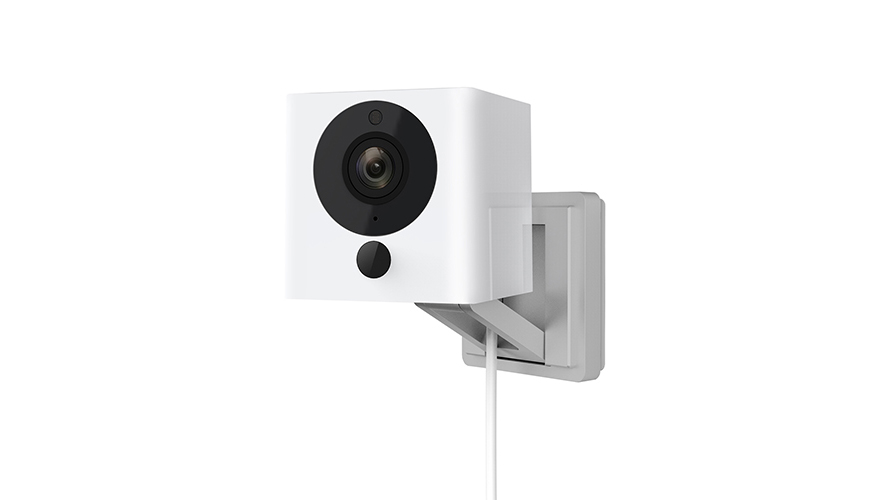The super-affordable WyzeCam security camera gets a big update
It highlights objects in motion and streams live in 1080p

WyzeCam has released an updated version of its budget-friendly security camera with a better sensor, as well as motion-tagging technology, which detects and outlines motion directly in its footage.
The best part is, like the original WyzeCam, the new version will still only cost $20. Although there's been no official UK and AU pricing revealed yet, that converts to around £14/AU$25.
WyzeCam v2 is much like the original WyzeCam in most respects. It captures 1080p footage, comes with 14 days of free rolling cloud storage, allows you to create custom timelapse videos and boasts continuous microSD recording (a microSD card isn't included though).
Affordable peace of mind
What sets this latest version apart is its motion-tagging technology, which outlines motion whether you're watching a livestream or replaying content. It's also packing a significantly improved CMOS sensor, which serves up clearer images during the day and provides you with enhanced night vision in the dark. Its new audio chip also aims to reduce interference, while a matte finish replaces the original camera's glossy look in a bid to reduce glare.
According to Engadget, the WyzeCam v2 will be getting a firmware update in March that will add IFTTT integration and limited support for Amazon Echo devices – you won't be able to control the camera via the speakers using voice commands, but you will be able to watch live feeds on the screen-equipped Echo Show and Echo Spot.
Sign up for breaking news, reviews, opinion, top tech deals, and more.

Becca is a contributor to TechRadar, a freelance journalist and author. She’s been writing about consumer tech and popular science for more than ten years, covering all kinds of topics, including why robots have eyes and whether we’ll experience the overview effect one day. She’s particularly interested in VR/AR, wearables, digital health, space tech and chatting to experts and academics about the future. She’s contributed to TechRadar, T3, Wired, New Scientist, The Guardian, Inverse and many more. Her first book, Screen Time, came out in January 2021 with Bonnier Books. She loves science-fiction, brutalist architecture, and spending too much time floating through space in virtual reality.